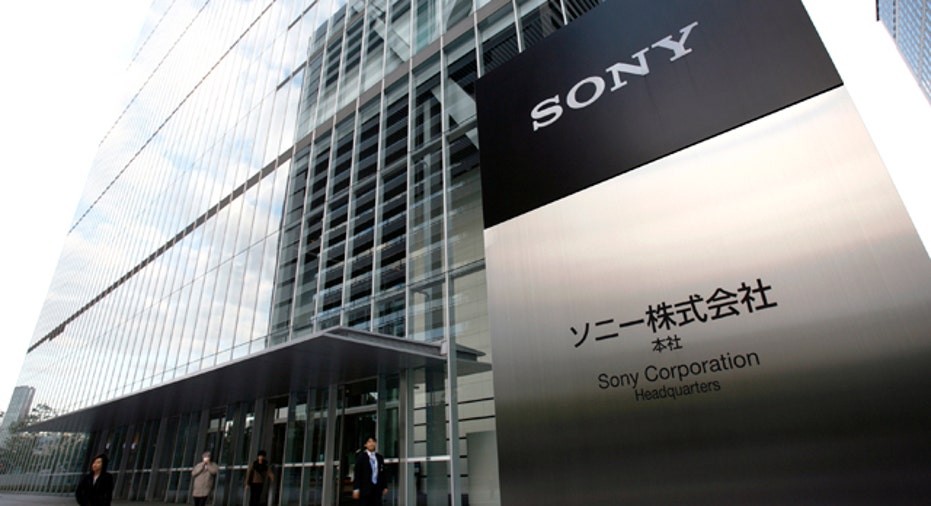Sony Slashes Profit Forecast Again, Raising Pressure On CEO

Sony Corp slashed its earnings guidance for the third time in a year on Thursday to barely 10 percent of its initial outlook as further losses from its PC exit cast a pall over its struggling electronics division.
The steep cut marks the failure of chief executive Kazuo Hirai to fulfill promises he made upon taking the helm of the electronics giant two years ago to push electronics into the black and casts further doubt over his financial management after five cuts to earnings guidance during his term.
The repeated misses - the latest just two weeks before Sony announces full-year results - are fuelling anger among investors even as Hirai rebuffs billionaire hedge fund manager Daniel Loeb's proposal to spin off Sony's profitable entertainment business.
"To be honest, I really wonder if he's got a grip on what's going on with all his businesses," said Yasuo Sakuma, a portfolio manager at Bayview Asset Management in Tokyo, who does not own Sony shares. "Cutting forecasts at this time; are they trying to hide something or have they lost it?"
Sony on Thursday cut its forecast for operating profit to 26 billion yen ($254.53 million) for the business year ended in March from a previous estimate of 80 billion yen and down from an initial forecast of 230 billion set last May.
It said it would have to write down a further 30 billion yen on its Vaio PC unit, reflecting a sharp drop in sales as consumers shunned the brand following Sony's decision in February to get out of the business.
That would also swell Sony's restructuring costs this year, which it said in February would reach 70 billion yen.
Sony widened its annual net loss estimate to 130 billion yen from the 110 billion it forecast in February, when it reversed a previous profit outlook.
The company will also book 25 billion yen in impairment losses from its disc production unit due to weak demand in Europe, as online streaming services like Netflix erode the DVD market.
Sony is struggling to recover after being undercut by nimbler Asian rivals in its key markets, in contrast to Japanese peer Panasonic Corp, which has staged a revival from deep losses by embracing industrial products and selling to businesses rather than consumers.
While Panasonic tends to beat its conservative forecasts - last week its full-year operating profit came in 13 percent above its forecast - Sony has become known for missing overly optimistic outlooks.
Before Thursday's cut, Sony had missed its forecasts in 10 of the prior 12 years, excluding gains from asset sales, the worst among 30 Japanese consumer electronics makers, analysts at brokerage firm Jefferies calculated in March.
By comparison, Panasonic, with the best record, exceeded its guidance nine times over the same period.
ASSET SALES
Since Hirai was named chief executive in February 2012, Sony's stock has risen 30 percent, far less than the wider Japanese market's 65 percent climb for the period.
He has started selling key assets in a bid to restore profitability at the company's struggling electronics division, where 10 years of losses on TVs have totaled $7.8 billion.
The selloffs included the sale of its U.S. headquarters building in New York for $1.1 billion, which it used to boost its operating profit for 2012/13 to 230 billion yen. This year, it sold two major buildings in Tokyo for $1.2 billion. Sony now makes most of its operating profit from its financial and insurance arm.
But the focus is still on profitability within electronics, on which Hirai has pegged Sony's rebirth using a three-prong strategy around mobile, imaging and gaming.
Strong sales of the Playstation 4 console offer one bright spot, but development costs mean it could take at least another year to turn a profit.
Sony's entertainment business, another reliable contributor of profit, came under pressure last year from Loeb's proposal for a spinoff to create more value for shareholders.
Loeb's fund, Third Point, had no immediate comment on Thursday's earnings revision.
Sony shares ended 1 percent higher on Thursday before the announcement. The stock is down 1 percent so far this year after surging 90 percent in 2013. That compares with a 11 percent decline for the benchmark Nikkei since the beginning of 2014.



















